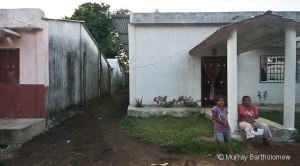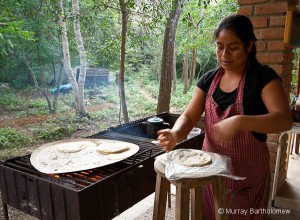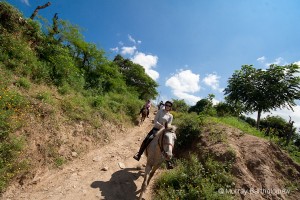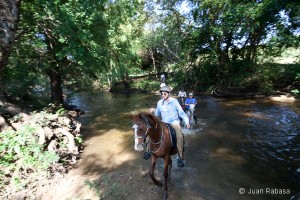 Assistant Editor's Note: AdventureTravelNews occasionally posts special Op-Ed articles in Viewpoints, a column designated for exploring different industry perspectives.
Assistant Editor's Note: AdventureTravelNews occasionally posts special Op-Ed articles in Viewpoints, a column designated for exploring different industry perspectives.
I've heard it said that our generation has the power to end starvation for the first time in history. One needn't travel far away to understand that this goal will be no easy task.
I'm here in Chiapas, a state in southern Mexico, and through our trip we have seen widespread poverty. Families have a couple chickens, maybe a pig, and usually a few children. Very young children are frequently seen selling wares to make a living. Tap water is unsafe. Houses look as if they are one storm away from collapsing. Clothing on many people is threadbare. Even dogs show their scrawny ribs.
What can be done?

Today, the developed world today could very well pool its resources and feed all starving people for one day, or perhaps even a month. But what happens at the end of that month? The financial resources would drain from the developed world and hungry people would return to finding their next meal. Instead, I believe that by enabling people to work for pay is the most effective way of ending hunger. Humans are made to work. Purchasing goods and services motivates the seller to improve their skills — in the short term it puts food on their table.
In my case here in Chiapas, I am fairly certain of my impact on feeding hungry people. And not by doling out meals.
 With my group’s tour operator, Enduro Ecuestre Chiapas, we ride horseback though winding roads and over steams, and break for lunch at a family's house. Our tortillas are lovingly made at a blazing fire. Fresh peppers are harvested from their garden and handed to us. In a heartfelt thanks, our host comments how happy he is to have us visit and eat with his family. He gives me a huge hug as we leave.
With my group’s tour operator, Enduro Ecuestre Chiapas, we ride horseback though winding roads and over steams, and break for lunch at a family's house. Our tortillas are lovingly made at a blazing fire. Fresh peppers are harvested from their garden and handed to us. In a heartfelt thanks, our host comments how happy he is to have us visit and eat with his family. He gives me a huge hug as we leave.
This family hosts our group because they are gracious, and because it provides for their next meal. I enjoy a meal in a beautiful place, and a poor family earns some money. What perfect symbiosis.

I don’t delude myself by thinking I am changing the whole world on my vacation. But what if most travelers traveled conscientiously, using locally-owned accommodations and restaurants — and, traveling to areas where their tourist dollar will have the most impact (i.e., the developing world). If done right — by ensuring the supply chain retains the money in theregion — the money families and regions earn would be enormous. And this isn’t a one-time gift or charity; this is paying someone for a job well done, for what they are good at.
Our horseback ride ends at a restaurant on a blue lake set against rolling jungle hills. Placed in front of me is a fish cooked whole. After a long day's ride, I pick up my fork and thankfully dig in.
